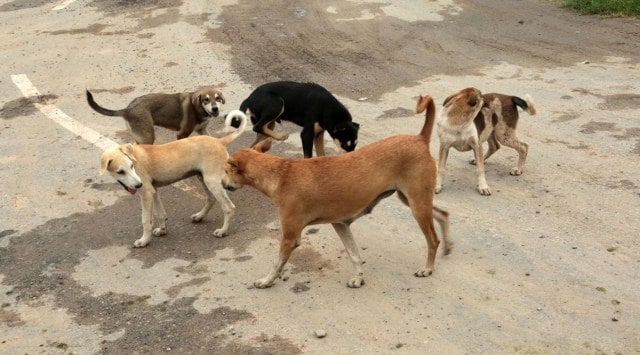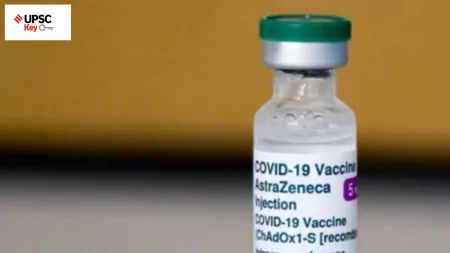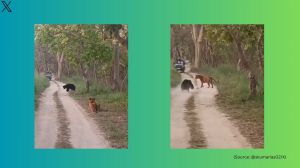- India
- International
When rights repel rights: How the stray dog problem in India hurts the marginalised
Dogs permeate all crucial spaces necessary for social and academic engagement. This makes visually-challenged persons reluctant to step out of their houses.
 Our streets, our campuses and our social spaces are replete with dogs, which often reproduce exponentially. (Express file photo)
Our streets, our campuses and our social spaces are replete with dogs, which often reproduce exponentially. (Express file photo) Written by Sachin Kumar and Satender Singh
Several instances of brutal attacks by stray dogs have been registered in recent times with victims receiving severe injuries, and even dying in some cases. Stray dog attack victims are largely the vulnerable sections such as the elderly, disabled and children. An amicable resolution eludes us primarily due to the unwillingness to reconcile mutually conflicting rights claims: Animal rights, the right to love dogs and the rights of the disadvantaged sections such as the disabled.
The discourse on animal rights is grounded in the principles of ecologism, anti-anthropocentrism, sacrosanctity of life and anti-speciesism as proposed by scholars like Peter Singer, Tom Regan and others. The right to love dogs is premised upon the idea that dogs reciprocate love, provide companionship and can co-exist harmoniously and harmlessly in our social spheres. An overzealous emphasis on these two kinds of rights claims is contravening the rights of people with disabilities such as the right to barrier-free participation, freedom, mobility, dignity, accessibility, inclusivity and realisation of self-worth as enshrined in various statutes like the United Nations Convention on the Rights of People with Disabilities, RPD Act, 2016, etc. Indeed, it is no less than an irony that the language of rights itself obturates the very rights of the disabled.
Our streets, our campuses and our social spaces are replete with dogs, which often reproduce exponentially. For instance, at the Jawaharlal Nehru University campus, our alma mater, there are more than 1,000 dogs. Around 20 dog bites are reported every month. While trying to reclaim their mobility, the visually-challenged students step or stub over the dogs which in most of the instances results in dog bites and cumbersome medical treatment thereafter. Dogs permeate all crucial spaces necessary for social and academic engagement. The hostels, school areas, dhabas, eateries, libraries, seminar rooms and convention centres, are all blessed with their presence. Constantly lingering threats make visually-challenged persons reluctant to step out of their rooms and hostels. This has severe ramifications on not only their development as informed citizens but also their psychological health.
Besides administrative apathy and failure, the issue remains unresolved in the absence of willingness to harmonise mutually conflicting rights claims. This explains why limited efforts by administrative bodies, such as relocation and sterilisation of stray dogs, have often met stiff resistance from so-called animal rights activists.
It is a well-known paradox in the discourse on rights that someone’s right might advertently or inadvertently curtail the liberties of someone else. A long tradition of liberal thought has sought to resolve this dilemma. J S Mill gave us the harm principle: Liberties are to be allowed only to the extent they do not cause imminent threat to others. Hence, reasonable restrictions could be imposed on rights and liberties. Yet, in practice, the contradictory set of rights remains difficult to reconcile given the prevailing socioeconomic inequalities. The liberties of the powerful trump the rights of the marginalised.

We need to be sensitive to the dictum “Your liberty to swing your fist ends just where my nose begins”. We must be mindful of the fact that every right comes coupled with corresponding responsibility.
Dog lovers may be assigned the legal guardianship of dogs to ensure the duties and liabilities associated with their rights. The dogs could be relocated to more suitable and appropriate places like shelter homes. These shelter homes can also be used as puppy farms for those who want to adopt the dogs. They may also be trained as guide dogs for visually-challenged people and trained not to harm people with disabilities.
The failure to harmonise the conflicting rights claims relegates the disabled and their concerns to the periphery. It results not only in severe loss of potential human resources but also robs society of an opportunity to be socially just to the most disadvantaged strata.
Kumar is Guest Faculty at St Stephen’s College, University of Delhi and Singh is Civil Servant, Project Executive Officer, Department of Rural Development, Puducherry
40 Years Ago
EXPRESS OPINION
More Explained
May 02: Latest News
- 01
- 02
- 03
- 04
- 05








































